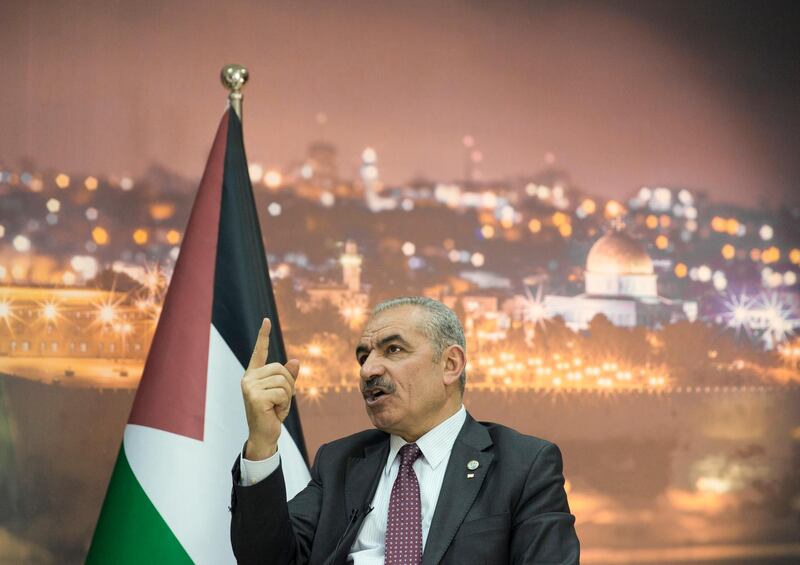The new Palestinian prime minister has said that the peace deal to be released by US President Donald Trump will be “born dead”, reiterating Ramallah’s rejection of any plan before it is announced.
The United States congratulated Mohammed Shtayyeh and the new Palestinian government that was sworn in over the weekend, but it has not changed matters in Ramallah, where officials are still refusing to engage with American officials.
“There are no partners in Palestine for Trump,” Mr Shtayyeh said in an interview with the Associated Press, his first with the international media.
“There are no Arab partners for Trump and there are no European partners for Trump.”
He also railed against the financial measures being imposed on the Palestinian Authority, with the US cutting millions in funding for the Palestinians and Israel refusing to hand over millions in collected tax funds.
"Israel is part of the financial war that has been declared upon us by the United States. The whole system is to try to push us to surrender" and agree to an unacceptable peace proposal, Mr Shtayyeh said. "This a financial blackmail, which we reject."
Without its key sources of revenue, the Palestinian Authority has begun paying only half salaries to tens of thousands of civil servants, reduced services and increased borrowing. In a new report being released Wednesday, the World Bank said the Palestinian deficit will grow from $400 million last year to over $1 billion this year.
Mr Shtayyeh laid out a number of proposals for weathering the storm. He said he has imposed spending cuts by reducing perks for his Cabinet ministers.
He said he would seek to develop the Palestinian agricultural, economic and education sectors and seek ways to reduce the Palestinian economy's dependence on Israel.
For example, he proposed importing fuel from neighboring Jordan, instead of from Israel, and even floating a Palestinian currency. He also said the Palestinians would seek financial backing from Arab and European donors.
Despite the tensions with Israel and the US, Mr Shtayyeh said the Palestinians remain committed to the establishment of an independent Palestinian state on areas captured by Israel in the 1967 war. That includes establishing a capital in occupied East Jerusalem, which Israel has annexed and claims as part of its eternal capital.
The two-state solution has enjoyed overwhelming international support for the past two decades. But Israeli Prime Minister Benjamin Netanyahu and his hard-line political allies reject Palestinian independence.







